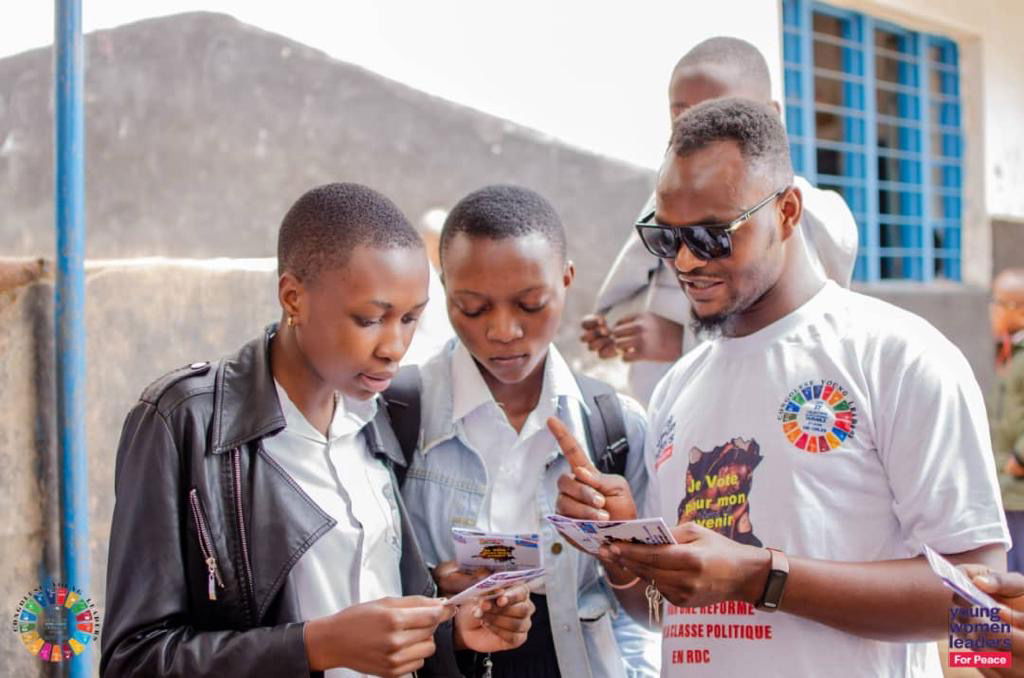Empowering Youth through Political Education in the DRC

Deep in the heart of the Democratic Republic of the Congo (DRC), there lies a burgeoning spirit that is palpable among its youth. Amid the bustling streets of Kinshasa, one young man’s journey exemplifies the transformative power of political education in a country that has faced its fair share of challenges. Jacques, a 19-year-old student from the commune of Gombe, harbors a passion for change in his country. His story is emblematic of how shaping young minds can alter the narrative of an entire nation.
Not long ago, Jacques was like many young people in the DRC — politically aware but feeling powerless to influence the vast machinery of the state. However, a chance encounter with a local civic education initiative set his life on a different trajectory. Through workshops and discussions, he discovered the vital role of governance, the significance of his vote, and the power of collective action. This awakening was not just personal but shared among his peers, a testament to the untapped potential resting in the youth of the DRC.
This narrative of empowerment through enlightenment is the cornerstone of cultivating a politically savvy young population in the DRC. A nation enriched with minerals but plagued by political instability, the role of political education cannot be overstated. The opportunities it can unlock for the DRC's youth are as vast as the country itself. Political education equips young people with tools not just to choose their leaders wisely but also to hold them accountable, thereby fostering a stronger, more resilient democracy.
The Importance of Political Education for Youth in the DRC
Political education is not a luxury but a necessity for the youth of the DRC. The historical context of the country, with decades of conflict and unrest, has certainly shaped the collective consciousness. Empowering the youth, who make up a substantial segment of the population, could be a pivotal factor in moving the country toward stability and prosperity.
Political education aims to embolden the youth, enlighten them about their rights and duties, and encourage their participation in democratic processes. In a country where the median age is just 17, preparing the youth to take the helm in future governance is both strategic and essential.
Fostering Civic Engagement and Responsibility
Political education transcends the idea of merely understanding political systems and the mechanics of elections. It encompasses cultivating a sense of civic duty and responsibility. By investing in the political education of young people, the DRC can expect to see an increase in civic engagement, with more individuals like Jacques taking an active role in shaping their communities and, ultimately, their country.
Challenges Faced in Political Education
Despite its potential, political education in the DRC faces numerous barriers. Lack of resources, limited accessibility to quality education, and a general distrust in political institutions hinder the process. These challenges underscore the need for concerted efforts by both local and international entities to foster an environment conducive to learning and political participation.
Role of Non-Governmental Organizations (NGOs) and International Bodies
Addressing the barriers to political education often necessitates the intervention of NGOs and international bodies. These organizations can provide the necessary resources and frameworks to support educational initiatives aimed at the youth. They can also facilitate the creation of safe spaces for discussion and debate, ensuring that the voices of the youth are heard and respected.
Curriculum Development and Teacher Training
A critical component of empowering the DRC's youth is developing a curriculum that is both comprehensive and contextually relevant. This involves not just curating content but also equipping educators with the skills to effectively impart political knowledge and critical thinking. Teacher training programs that emphasize participatory teaching methods are vital to this end.
Technology and Innovation in Political Education
In an era marked by technological advancements, leveraging digital tools for political education offers promising possibilities. E-learning platforms, social media campaigns, and interactive apps could engage young people in novel and impactful ways, breaking the traditional barriers of access and interest.
Success Stories and Continued Advocacy
Despite challenges, there are successful initiatives that serve as beacons of hope for the DRC's youth. Stories like Jacques's showcase the profound impact of political education. Continued advocacy for such initiatives is crucial, not only from NGOs and the international community but from the government itself.
The Impact of an Informed Youth on the Future of the DRC
The potential dividends of politically educating the DRC's youth are immense. An informed, engaged young population can lead to a more transparent, accountable government. In the long term, this could result in improved policies, better governance, and a more peaceful and prosperous society. The foundation for this future is laid through the education and empowerment of the youth.
Conclusion
In conclusion, the story of Jacques and many like him in the DRC is more than a testament to the power of political education; it is a clarion call for investment in the minds and hearts of the youth. The promise of a stable, democratic, and prosperous DRC lies in nurturing a politically savvy, engaged, and responsible younger generation. For these young citizens are not just the leaders of tomorrow; they are the agents of change today.
By focusing on empowering the youth through political education, the DRC can ensure that the mantle of leadership and governance is passed on to capable hands ready to steer the country toward a future filled with hope and promise. Jacques's journey from passive observer to active participant is just the beginning of an inspiring chapter in the DRC's history — a chapter where its youth hold the pen.